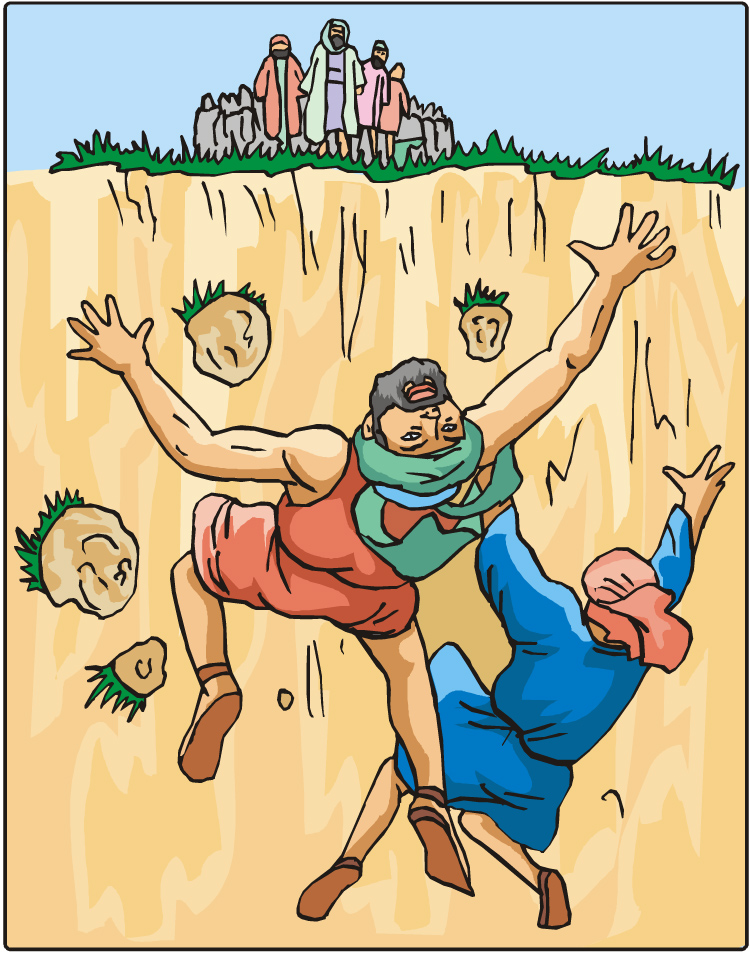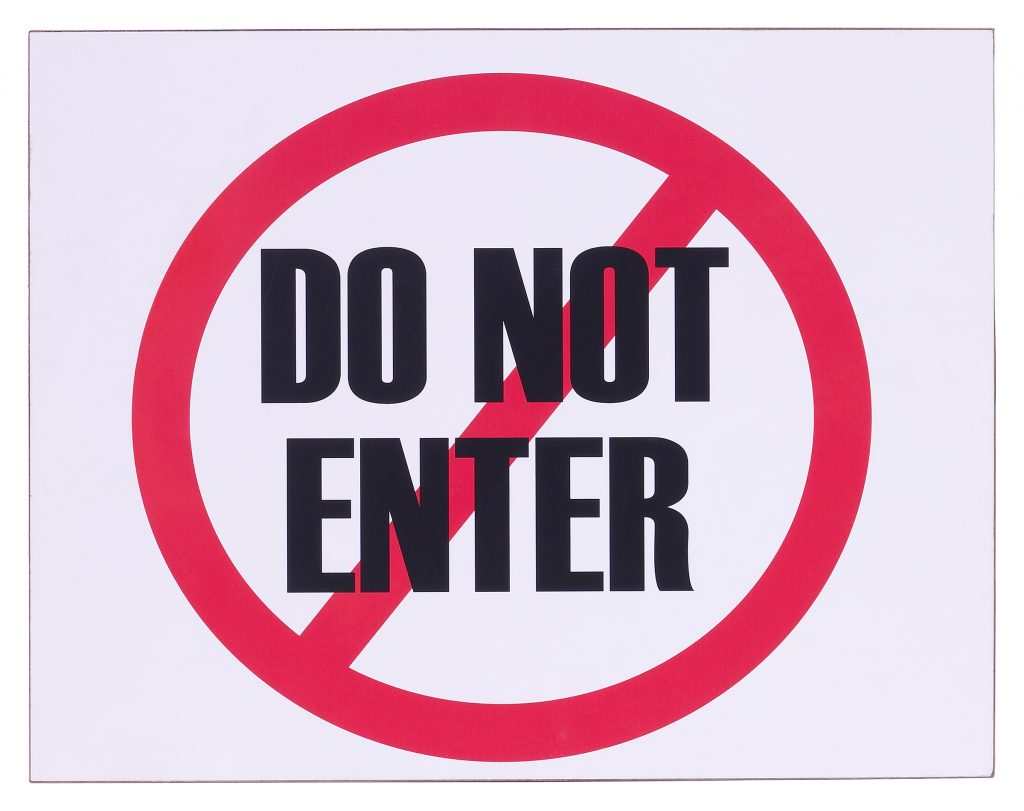Tag Archives: Korah
Numbers 16—The Dynamics of Pride and Rebellion and Elohim’s Response
Numbers 16:1–3, Took men…rose up…gathered together against. Notice a progression (or downward spiral) of actions on the part of Korah and his rebels. They separated themselves from fellowship, rose up against Moses, gathered together others of like mind and falsely accused leadership of wrong doings. This is the world’s formula for achieving political (humanistic) power and domination. It is the opposite method of advancing in YHVH’s kingdom where the way down is the way up; that is, when one lays one’s life down in service, spiritual reward, advancement and blessing will occur for that person (Matt 20:27; 23:10).
Rebels, like Korah, tend to separate themselves from fellowship, seek out other like-minded rebels, and then rise up in defiance and accusation against godly leadership. Again, this leads to political power. The way of spiritual power is laid out in Acts 2:42–47 where the followers of Yeshua continued steadfastly in the apostles’ doctrine, in fellowship, breaking bread together, in prayer and sharing their goods with one another. The result was real spiritual power authority and anointing from heaven, and not power based on usurpation, human pride, degradation of others and self-promotion. This can only happen as people forsake not the assembling of themselves together (Heb 10:25), function according to the place and spiritual calling within the spiritual body of Yeshua submitted one to another as they walk in the spiritual light YHVH’s instructions in righteousness—the Torah.
Additionally, Yeshua taught that true power in the kingdom of Elohim is a result of one laying one’s life down for his brother and serving him in love and humility. Such a person will be elevated to a position of influence and authority because he has learned to serve others in love and selflessness rather than seeking to be served, which stems from a heart of selfishness and pride (Matt 20:25–28; 23:11–12).
The Jewish sages note that Korah and his band of malcontent had come under the power of resentment, which grew and festered until open rebellion broke out. Korah was a fellow Levite and cousin of Aaron who was among those “overlooked” for the priesthood and who were relegated to being “mere” assistants to the priests. He was also a firstborn of his household (Exod 6:21), and when the tabernacle sacrificial service was inaugurated Aaron’s sons replaced the firstborn Israelites in offering sacrifices. Furthermore, Dathan, Abiram and On were of the tribe of Reuben, the first-born child of Jacob. These men had their own grudge, since Reuben had lost his birthright as the firstborn son to the sons of Joseph because of sin (note 1 Chron 5:1).
What do we see here? Resentment (a function of pride and selfishness) leads to bitterness, which then leads to separation, then to uprising, then to accusation, then to rebellion against YHVH-ordained authority, then to attempted usurpation of authority, and eventually it leads to judgment and death. Is this not the path Lucifer took in his rebellion against YHVH Elohim? (Read Isa 14:12–23.)
Numbers 16:5–6, Who is his…take censers. Incense is a biblical metaphor for the prayers of men coming up before YHVH’s throne (Rev 5:8; 8:3). YHVH accepts some men’s prayers as holy and rejects the prayers of other men whom he deems not to be holy. The story of Korah teaches us that YHVH doesn’t hear the prayers of self-centered, self-seeking, prideful Continue reading
Pray for your enemies!
But I say unto you, Love your enemies, bless them that curse you, do good to them that hate you, and pray for them which despitefully use you, and persecute you. (Matt 5:44)
Numbers 16:44–48, They fell on their faces. Moses was a true intercessor or intermediary between YHVH and the people, and he was a prophetic picture of Yeshua who is our spiritual Advocate (legal representative) before Elohim. YHVH wanted to destroy the people for their unending rebellion and murmuring, yet Moses and Aaron interceded on their behalf and many lives were saved.
How often are we inclined to write people off who have wronged us instead of interceding for them, praying for their salvation, healing, welfare or whatever their need may be? Do you go through life rendering good for evil? Where is the love of Elohim in all of this? It’s all about love—the love of YHVH in us toward a dying and hurting world. Aaron went among the dying people burning incense (verse 47). Incense is symbolic of prayer—the prayers of the saints (Rev 5:8; 8:4).
How much time do you spend each day in prayer for others—or is most of your time spent in selfish prayer? Do you spend time each day in meaningful prayer? It has been reported that the average American Christian spends as little as ten minutes a week in prayer, and the average pastor about ten minutes per day. Is it any wonder this nation is as spiritually sick as it is? Perhaps the quality of your life would improve if you spent more time each day in prayer and intercession.
Here are some scriptures that reveal the work of Yeshua the Messiah as the Mediator between Elohim (the Father) and man, and as the only way to the Father:
Yeshua says unto him, “I am the way, the truth, and the life; no man comes unto the Father, but by me.” (John 14:6)
Truly, truly, I say unto you, Whatsoever you shall ask the Father in my [Yeshua’s] name, he will give it to you. (John 16:23, see also 14:13, 14, 16; 16:24, 16.)
But these are written, that you might believe that Yeshua is the Messiah, the Son of Elohim; and that believing you might have life through his name. (John 20:3)
Therefore being justified by faith, we have peace with Elohim through our Master Messiah Yeshua by whom also we have access by faith into this grace wherein we stand, and rejoice in hope of the glory of Elohim. (Rom 5:1–2)
For the wages of sin is death; but the gift of Elohim is eternal life through Messiah Yeshua our Master. (Rom 6:23)
Who is he that condemns? It is Messiah that died, yes rather, that is risen again, who is even at the right hand of Elohim, who also makes intercession for us. (Rom 8:34)
But thanks be to Elohim, which gives us the victory through our Master Messiah Yeshua. (1 Cor 15:57)
Wherefore you are no more a servant, but a son; and if a son, then an heir of Elohim through Messiah. (Gal 4:7)
But now in Messiah Yeshua you who sometimes were far off are made nigh by the blood of Messiah. For he is our peace, who has made both one, and has broken down the middle wall of partition between us; having abolished in his flesh the enmity, even the law of commandments contained in ordinances; for to make in himself of twain one new man, so making peace; and that he might reconcile both unto Elohim in one body by the cross, having slain the enmity thereby: and came and preached peace to you which were afar off, and to them that were nigh. For through him we both have access by one Spirit unto the Father. (Eph 2:13–18)
In whom we have boldness and access [to the Father in heaven] with confidence by the faith of him [Yeshua]. (Eph 3:12)
For there is one Elohim, and one mediator between Elohim and men, the man Messiah Yeshua; who gave himself a ransom for all, to be testified in due time. (1 Tim 2:5–6)
Wherefore in all things it behoved him to be made like unto his brethren, that he might be a merciful and faithful high priest in things pertaining to Elohim, to make reconciliation for the sins of the people. (Heb 2:17)
Wherefore, set-apart brethren, partakers of the heavenly calling, consider the Apostle and High Priest of our profession, Messiah Yeshua. Who was faithful to him that appointed him, as also Moses was faithful in all his house. (Heb 3:1–2)
Seeing then that we have a great High Priest, that is passed into the heavens, Yeshua the Son of Elohim, let us hold fast our profession. For we have not an High Priest which cannot be touched with the feeling of our infirmities; but was in all points tempted like as we are, yet without sin. (Heb 4:14–15)
So also Messiah glorified not himself to be made an high priest; but he that said unto him, “You are my Son, today have I begotten you.” As he says also in another place, “You are a priest for ever after the order of Melchizedek.” (Heb 5:5–6)
Which hope we have as an anchor of the soul, both sure and steadfast, and which enters into that within the veil; whither the forerunner is for us entered, even Yeshua, made an high priest for ever after the order of Melchizedek. (Heb 6:19–20)
Now of the things which we have spoken this is the sum: we have such an High Priest, who is set on the right hand of the throne of the Majesty in the heavens; a minister of the sanctuary, and of the true tabernacle, which the Lord pitched, and not man.… But now has he obtained a more excellent ministry, by how much also he is the mediator of a better covenant, which was established upon better promises. (Heb 8:1–2, 6)
But Messiah being come an High Priest of good things to come, by a greater and more perfect tabernacle, not made with hands, that is to say, not of this building; neither by the blood of goats and calves, but by his own blood he entered in once into the set-apart place, having obtained eternal redemption for us.… And for this cause he is the mediator of the renewed covenant, that by means of death, for the redemption of the transgressions that were under the first covenant, they which are called might receive the promise of eternal inheritance.… For Messiah is not entered into the set-apart places made with hands, which are the figures of the true; but into heaven itself, now to appear in the presence of Elohim for us. (Heb 9:11–12,15,24)
By that will we have been sanctified through the offering of the body of Yeshua Messiah once for all. And every priest stands daily ministering and offering oftentimes the same sacrifices, which can never take away sins, but this man, after he had offered one sacrifice for sins for ever, sat down on the right hand of Elohim.… having therefore, brethren, boldness to enter into the holiest by the blood of Yeshua, by a new and living way, which he has consecrated for us, through the veil, that is to say, his flesh; and having an high priest over the house of Elohim. (Heb 10:10–12,19–21)
And to Yeshua the mediator of the recently born/youthful covenant, and to the blood of sprinkling, that speaks better things than that of Abel. (Heb 12:24)
My little children, these things write I unto you, that you sin not. And if any man sin, we have an advocate with the Father, Messiah Yeshua the righteous: and he is the propitiation for our sins: and not for ours only, but also for the sins of the whole world … I write unto you, little children, because your sins are forgiven you for his name’s sake. (1 John 21–2,12)
Don’t let resentment, bitterness and pride take you down!
If you get lifted up in pride and resentment, you’re headed for a fall!
Numbers 16:1–3, Took men…rose up…gathered together against. Notice a progression (or downward spiral) of actions on the part of Korah and his rebels. They separated themselves from fellowship, rose up against Moses, gathered together others of like mind and falsely accused leadership of wrong doings. This is the world’s formula for achieving political (humanistic) power and domination. It is the opposite method of advancing in YHVH’s kingdom where the way down is the way up; that is, when one lays one’s life down in service, spiritual reward, advancement and blessing will occur for that person (Matt 20:27; 23:10).
Rebels, like Korah, tend to separate themselves from fellowship, seek out other like-minded rebels, and then rise up in defiance and accusation against godly leadership. Again, this leads to political power.
On the other hand, the path to godly spiritual power is laid out in Acts 2:42–47 where the followers of Yeshua continued steadfastly in the apostles’ doctrine, in fellowship, breaking bread together, in prayer and sharing their goods with one another. The result was real spiritual power authority and anointing from heaven, and not power based on usurpation, human pride, degradation of others and self-promotion. This can only happen as people forsake not the assembling of themselves together (Heb 10:25), function according to the place and spiritual calling within the spiritual body of Yeshua submitted one to another as they walk in the spiritual light YHVH’s instructions in righteousness—the Torah.
Additionally, Yeshua taught that true power in the kingdom of Elohim is a result of one laying one’s life down for his brother and serving him in love and humility. Such a person will be elevated to a position of influence and authority because he has learned to serve others in love and selflessness rather than seeking to be served, which stems from a heart of selfishness and pride (Matt 20:25–28; 23:11–12).
The Jewish sages note that Korah and his band of malcontent had come under the power of resentment, which grew and festered until open rebellion broke out. Korah was a fellow Levite and cousin of Aaron who was among those “overlooked” for the priesthood and who were relegated to being “mere” assistants to the priests. He was also a firstborn of his household (Exod 6:21), and when the tabernacle sacrificial service was inaugurated Aaron’s sons replaced the firstborn Israelites in offering sacrifices. Furthermore, Dathan, Abiram and On were of the tribe of Reuben, the first-born child of Jacob. These men had their own grudge, since Reuben had lost his birthright as the firstborn son to the sons of Joseph because of sin (note 1 Chron 5:1).
What do we see here? Resentment (a function of pride and selfishness) leads to bitterness, which then leads to separation, then to uprising, then to accusation, then to rebellion against YHVH-ordained authority, then to attempted usurpation of authority, and eventually it leads to judgment and death. Is this not the path Lucifer took in his rebellion against YHVH Elohim? (Read Isa 14:12–23.)
The judgments of Elohim came upon both Lucifer and Korah, and both were cast down.
Pride goeth before destruction, and an haughty spirit before a fall. (Prov 16:18)
Are your prayers being hindered or rejected by heaven?
Numbers 16:5–6, Who is his…take censers. Incense is a biblical metaphor for the prayers of men coming up before YHVH’s throne (Rev 5:8; 8:3). YHVH accepts some men’s prayers as holy and rejects the prayers of other men whom he deems not to be holy.
The story of Korah teaches us that YHVH doesn’t hear the prayers of self-centered, self-seeking, prideful and jealous rebels such as Korah et al (Prov 15:29). YHVH’s ears are open to the prayers of the righteous (Ps 34:15; 1 Pet 3:12; Jas 5:16; Heb 11:6).
The prayers of a righteous man can be hindered, as well, due to unrighteous behavior such as not treating his wife in a godly manner (1 Pet 3:7) or because we have ought with our brother (Matt 5:23–24).
Escape YHVH’s judgment …come out of her my people!
Numbers 31:7, 17, They slew all the males … every male among the little ones … and kill every woman that has known man by lying with him. Do you suppose that every Midianite who was slain was directly culpable for causing Israel to fall into idolatry and sexual immorality? If not, why were they slain?
We see a similar situation with Korah and his malcontents where the earth swallowed up not only Korah, Dathan and Abiram, but their families as well (Num 16:31–33).
Even those who are not directly culpable for a particular sin, if they maintain company with sinners they will become morally tainted (1 Cor 5:6; 15:33; Gal 5:9). If the righteous dwell near the wicked is it possible for YHVH’s judgments against the wicked to overlap onto the righteous? If this were not possible then why did YHVH instruct the righteous Israelites to separate themselves from the environs of Korah’s camp (Num 16:23–27), and why does YHVH call his people to come out of Babylon the Great in the end times? (Read Rev 18:4 for the answer.)
How do we separate from the wicked? In the examples just cited, we see two kinds of separation from evil: physical and spiritual. We can start by separating spiritually without separating physically, but will there ever come a time when YHVH’s people will have to separate physically? (See Rev 12:14.) How will the spiritual woman of Revelation 14 know when to do this and where to go? Will the Good Shepherd abandon or lead his sheep in the day of trouble? (Note John 10:1–5.)
May we always be pressed into Yeshua, our spiritual Shepherd, so that we will always hear his voice concerning what to do and where to go and when.
Korah: A Character Study of a Malcontent, a Rebel and a Humanist
The Spirit of Korah
The spirit of Korah is alive and well on planet earth. The righteous must discern, identify and then oppose it. Everywhere in every way, it is attempting to destroy the work of YHVH Elohim on earth.
The spirit of Korah is the spirit of rebellion against YHVH and his divine authority. In our society, it is manifested in the philosophies of secular humanism, socialism, Marxism, evolution, which are all aspects of the Babylon the Great, New World Order political-religious system that will oppose the saints of Yeshua and Yeshua himself at this second coming. We see it at work, supported and encouraged in international politics, in our own government, in our educational systems, in the media, in the false religions of the world, and in the apostate church. Even within the spiritual body of Yeshua it is attempting to subvert and pervert the truth of Elohim as revealed in the Bible, and to undermine legitimate, YHVH-ordained authority.
The rebellion of Korah and his comrades against Moses and Aaron and Elohim’s judgment against them is a prophetic picture of what will happen in the end times. In fact, it is a picture of the judgment of Elohim that will happen to ALL sinners who choose to rebel against YHVH, his will, his Word, his plans and purposes and those on this earth who are carrying out his will.
The spirit of Korah continues to manifest itself in uprisings against godly authority both within the body of Yeshua, and globally as the New World Order, which the Book of Revelation calls Babylon the Great, takes a more strident and virulent stand against Elohim, the Bible and the saints. Continue reading






